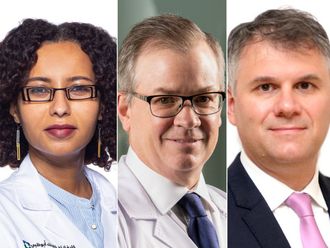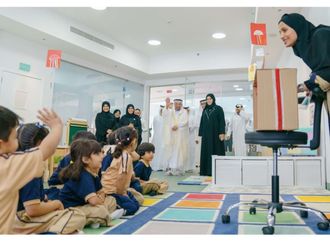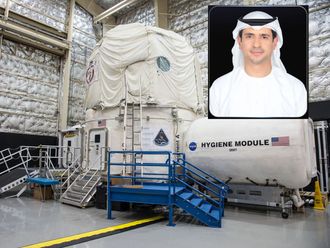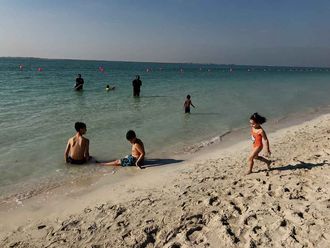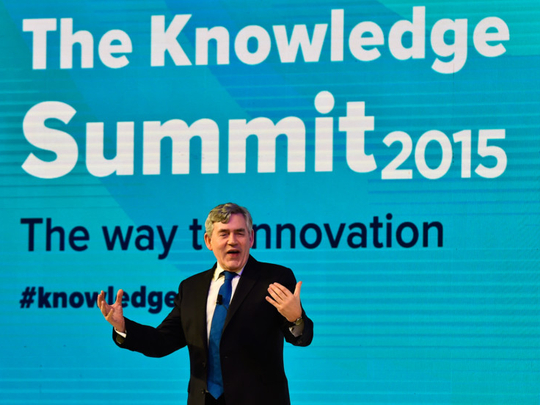
Dubai: The UN aims to provide education to one million refugee children in the next few months, said Gordon Brown, former British Prime Minister and United Nations Special Envoy for Global Education, at the Knowledge Summit 2015 on Monday.
“The human body can survive for 40 days without food, eight days without water and eight minutes without air but it cannot survive a second without hope, and education is about hope,” said Brown, referring to refugee children.
On an average, he said, refugees spend 10 years outside their country. So if, for example, they leave their country at the age of 5 and return at 15, they will not be able to pursue their education.
“If we don’t provide them with an education, in the long run, we would have a lost an entire generation not just in terms of personal well-being and economic success, but also [a generation] of angry young people who will see the opportunities others have that they don’t.”
Brown said it is important to provide education, especially in this region, to prevent diminishing the prospects of the economies and also to stem the influence of terrorist groups that prey on the disenchanted and recruit them.
“Our aim in the next few months is to make sure that one million of these Syrian refugee children at least are educated and thus given hope for the future,” he said. This, he said, is an UN objective.
Brown said he wants this to be an international effort and called on all countries to cooperate in ensuring that by the end of this decade, every child has a basic right to education.
Governments must commit to making global education a priority, Brown said, especially because humanitarian funds contribute only two per cent to education, as the rest goes toward food and shelter. Another window must be established to support education, he said.
“What we must do is open up existing schools to have two shifts a day [morning shifts for regular students and afternoon for refugees like what Lebanon is currently doing] in Jordan and Turkey and where there are [refugee] camps, there should be prefab buildings [that function as schools],” he said.
Technological innovation, Brown said, can help countries build a strong base that will help them improve their standard of living. It can provide opportunities to the poorest child in a remote region, who despite the odds, can access the best libraries and lectures in the world via technology.
Brown commended the UAE’s drive for innovation in schools and said he was inspired by the country’s goals and ambitions in space technology. He also commended the development of UAE school curriculums to align with these goals.
Every successful educational system, said Brown, needs to have teachers of the highest quality. “Just as [His Highness] Shaikh Mohammad [Bin Rashid Al Maktoum, Vice-President and Prime Minister of the UAE and Ruler of Dubai] is the leader of innovation in this country … every school should have head teachers who encourage innovation and respond to change,” he said.


